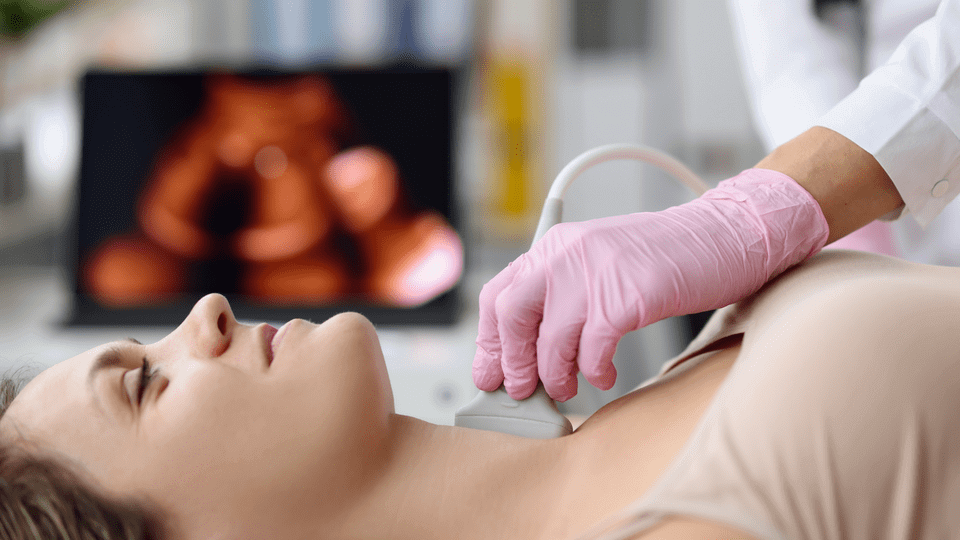Underactive Thyroid:
Symptoms & Causes of Hypothyroidism


What Is Your Thyroid And What Does It Do?
As mentioned above, the thyroid gland plays an important role in our overall health and wellness…but what does it do? The thyroid is a small, butterfly-shaped gland that sits at the base of the neck , at the same level as the voicebox (larynx). This gland produces hormones called thyroxine and triiodothyronine which the body uses to regulate your metabolism (the rate at which cells burn energy). This, in turn, influences many vital functions, such as body temperature heart and nervous system.
However, just like all other organs and glands in the human body, sometimes the thyroid doesn’t function properly. If the thyroid gland doesn’t produce enough thyroxine it is ‘underactive’ and this causes hypothyroidism. On the other hand, sometimes the thyroid gland produces too much thyroxine and becomes ‘overactive’ and this can cause hyperthyroidism.
The Most Common Symptoms Of An Underactive Thyroid
Although hypothyroidism and hyperthyroidism sound very similar, each condition has its own distinct symptoms. For instance, in hypothyroidism (underactive thyroid) many normal body functions slow down. Typically, this happens gradually over time and therefore it can be difficult to identify. In addition to this, many hypothyroidism symptoms mimic other common complaints such as fatigue. Therefore, hypothyroidism often goes undetected for quite some time.
Some of the most common hypothyroidism symptoms include:
- Fatigue
- Weight gain
- Constipation
- Depression and low mood
- Sensitivity to the cold
- Slower reaction times
- Dry, scaly skin
- Brittle hair and nails
- Irregular or heavy periods
- Loss of libido
- Hoarseness
- Pain, numbness or a tingling sensation in the hands or fingers
- Slow movements and thoughts
- Muscles aches, cramps and weakness
Hypothyroidism typically affects middle-aged and older women, though anyone can develop the condition, including children, teenagers and males. Generally speaking, children and teenagers with the condition develop the same symptoms as mentioned above, however, they may also experience the following:
- Reduced physical growth
- Developmental delay
- Delayed development of permanent teeth
- Delayed puberty
It is important to note that not all of the symptoms associated with an underactive thyroid are physical. Hypothyroidism can cause slowing of all metabolic processes, including cognitive function and mood.
It can cause depression-like symptoms such as persistent low moods and fatigue. Mental alertness can be affected. This can slow down your thought process and cause difficulty concentrating. Some people will experience short-term memory loss and a general sense of disinterest in things they usually enjoy.

What Causes Hypothyroidism?
When it comes to an underactive thyroid, there are many potential causes. The most common cause of hypothyroidism is autoimmune disease (Hashimoto’s thyroiditis). Other causes include congenital (born with hypothyroidism), radiation therapy, thyroid surgery, hyperthyroidism treatments, and certain medications. Let’s take a closer look.
Autoimmune Disease
One of the most common causes of hypothyroidism is an autoimmune disorder called Hashimoto’s Thyroiditis. An autoimmune disorder occurs when your immune system produces antibodies that attack your own body. Sometimes that can include your thyroid gland. This can affect the gland’s ability to produce hormones. In this case, it isn’t clear why this happens but it is likely to be caused by a combination of factors. For instance, genetics and environmental factors.
Radiation Therapy And Certain Medications
Certain medications and treatments can impact how your thyroid functions. For instance, radiation therapy is used to treat certain cancers. If the head and neck area is exposed to radiation therapy, your thyroid gland can be damaged and unable to produce enough thyroid hormone.
Similarly, some medications can damage the thyroid gland. For example, some medications used to treat psychiatric conditions, can interfere with thyroid hormone production and thyroid blood tests should be monitored regularly if you are taking certain medications. If you’re taking medication and you’re experiencing any of the above symptoms, you should speak to your doctor about any potential effects of your medication on your thyroid gland.
Over-Response To Hyperthyroidism Treatment
As we mentioned above, sometimes the thyroid gland can produce too much thyroxine, leading to hyperthyroidism. To treat this, doctors often prescribe radioactive iodine or anti-thyroid medications to control the levels of thyroid hormone being produced. s. However, this can occasionally decrease thyroid hormone production too much, leading to hypothyroidism.
Less Common And Rare Causes Of An Underactive Thyroid
While less common, there are other causes of hypothyroidism. Some of these include:
- Congenital Disease: This occurs when babies are born without a thyroid gland or with an undeveloped thyroid gland. Congenital hypothyroidism can go undetected for a number of months as the condition is not always apparent at birth.
- Pituitary Disorder: This is a rare cause of hypothyroidism. It occurs when the pituitary gland doesn’t produce enough thyroid-stimulating hormone (TSH). We need this hormone to stimulate the thyroid gland to produce thyroxine and triiodothyronine.
- Pregnancy: Although not common, some women can develop hypothyroidism during pregnancy or in the postpartum periods. Left untreated, it can increase the risk of premature delivery, preeclampsia and miscarriage.
- Iodine Deficiency: We need iodine, a trace mineral, to produce thyroid hormones. An iodine-deficient diet can lead to hypothyroidism but too much iodine can worsen hypothyroidism for people who already have the condition.

Are Some People More At Risk Of Developing Hypothyroidism Than Others?
Anyone can develop an underactive thyroid but there are some groups of people who are at increased risk. For instance, you are more likely to develop the condition if you are a woman and over 60 years old. You may be more likely to develop hypothyroidism if you have:
- Received radioactive iodine or anti-thyroid medications.
- An autoimmune disorder, such as type 1 diabetes or coeliac disease.
- A family history of thyroid disease.
- Received radiation therapy to the head, neck or upper chest.
- Had surgery on your thyroid, such as a partial thyroidectomy.
- Been pregnant or given birth within the past 6 months.
Hypothyroidism treatments
Luckily, an underactive thyroid can be treated! You can take thyroid hormone tablets,) to replace the hormones that your body isn’t producing.
Repeat Prescription
Hypothyroidism Treatment
Request a prescription for Hypothyroidism Treatment online with Webdoctor.ie! Once your request has been approved, we can send your prescription directly to your chosen pharmacy via secure Healthmail.
Webdoctor.ie’s Online Hypothyroidism Treatment Prescription Service
Here at Webdoctor.ie, we can provide a prescription for Hypothyroidism Treatment if you have already been diagnosed with an underactive thyroid and your thyroid levels are stable. You can request treatment at any time through our online Hypothyroidism Treatment prescription service.
To avail of this service, you simply need to fill in a short and secure questionnaire – there’s no need to make an appointment to speak to a doctor! One of our Irish Medical Council-registered doctors will then review your request to make sure it is medically safe and suitable for you. Once your request has been approved, we will send your prescription to your chosen pharmacy via Healthmail.
How It Works
Through an online medical questionnaire, face-to-face video consultation or home health test, our online doctors will review your case and prescribe the best treatment for you.

Step 1
Online Questionnaire

Step 2
Medical Review
